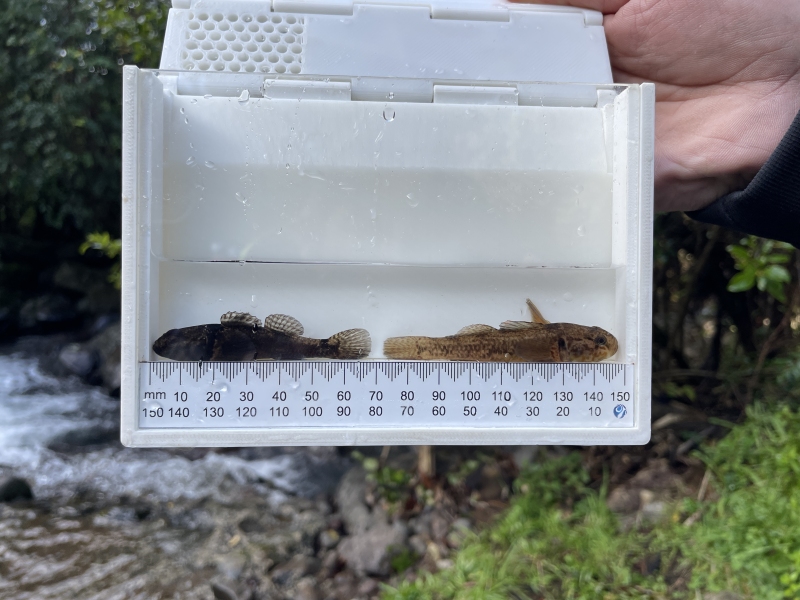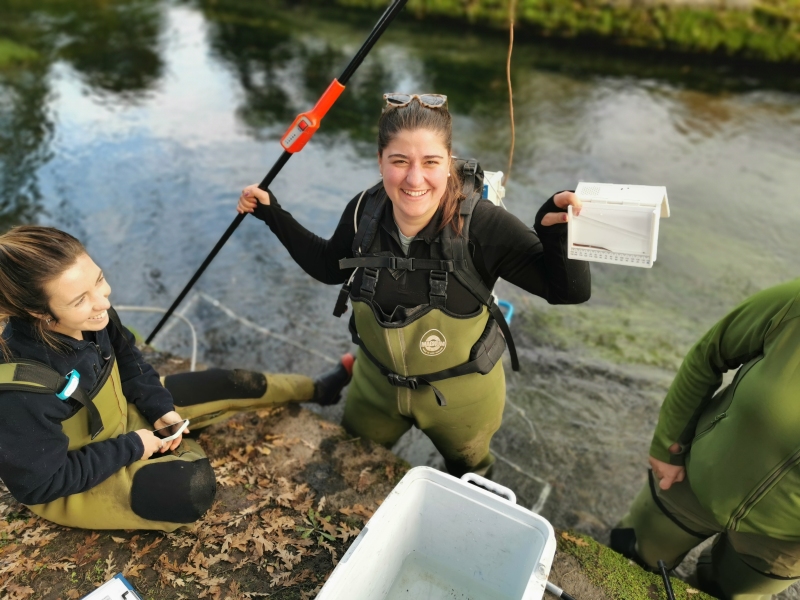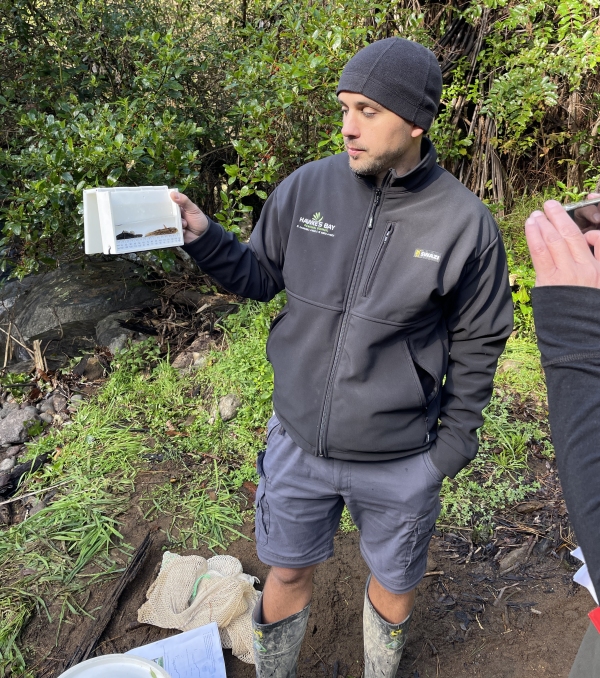NIWA has developed a Photarium using the latest 3D printing technology to more safely identify and measure fish species that live in our waterways.
According to Statistics NZ, 76 percent of the 51 indigenous freshwater fish species in New Zealand are threatened with extinction or at risk of becoming threatened, so education, data and research are critical to understanding how better to identify, protect and sustainably manage these species.
Photariums are indispensable tools used by photographers, researchers, and educators around the world to safely observe live fish in the field, but they are currently only made in the United States and do not ship to New Zealand.
NIWA Freshwater Ecologist Peter Williams took matters into his own hands. He developed his own Photarium and is producing it easily and affordably using a new industrial grade 3D printer NIWA recently acquired.
"An older 3D printer would have only produced a prototype quality unit and we would have needed a costly specialist manufacturer to make the finished product," he says.
"NIWA’s new 3D printer is more advanced and allows us to produce a quality product at low cost which means its accessible to those who need it here in Aotearoa.".
A Photarium is a small plastic rectangular box, with a clear side and built-in ruler. It allows small fish to be studied without being handled or taken out of the water. It also has a hinged flap to block out light and give the fish privacy to reduce stress during transportation.
Williams designed the NIWA Photarium based on his 14 years of field experience and has been able to adapt and modify it for sampling small fish species in New Zealand’s waterways.
"Many of our native species are climbing fish and the top part of the lid can be closed to stop the fish from jumping out. A mesh that's printed into this hatch cover allows us to top up the water level for better photography," he says.
"The beauty of the 3D printer is it allows NIWA to produce Photariums on demand and to keep improving our design based on what we discover while using them in the field."
The NIWA Photarium improves the accuracy of fish identification. It allows collection and release with minimum handling, and without the use of anaesthetics, which if not done properly can lead to mortality in the fish. It enables small and delicate life stages of fish to be accurately observed and photographed without harming the fish.
Given its success in improving the accuracy of fish identification and photography, NIWA has already had over 70 orders for its Photarium from regional councils, rūnanga, DOC, and education groups across the country. Williams is also showcasing the benefits of the newly available Photariums as part of NIWA’s electric fishing operator course, which he runs nationwide.




